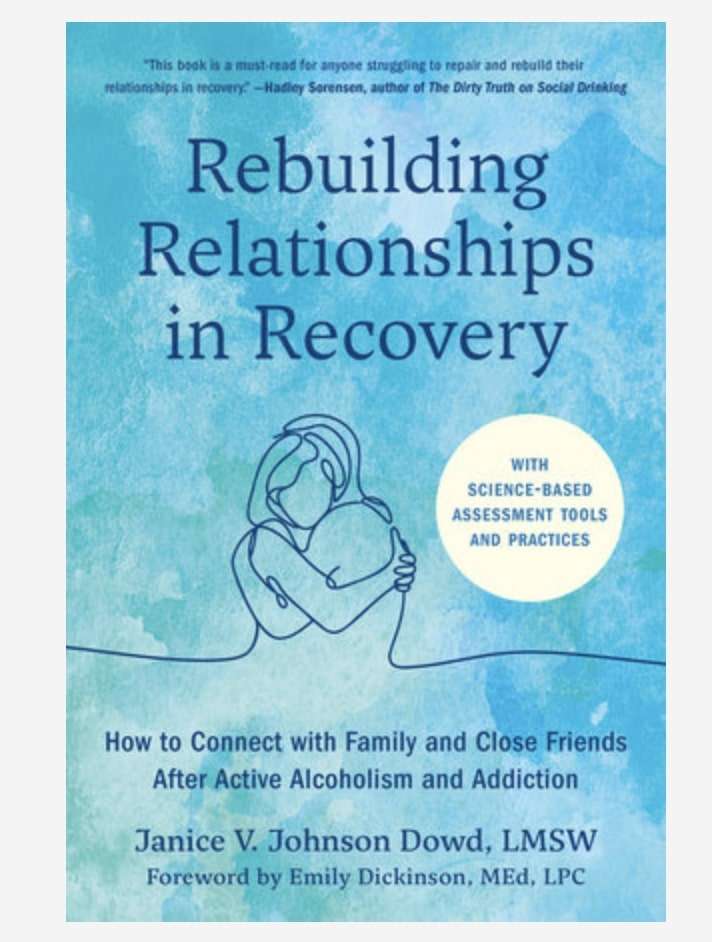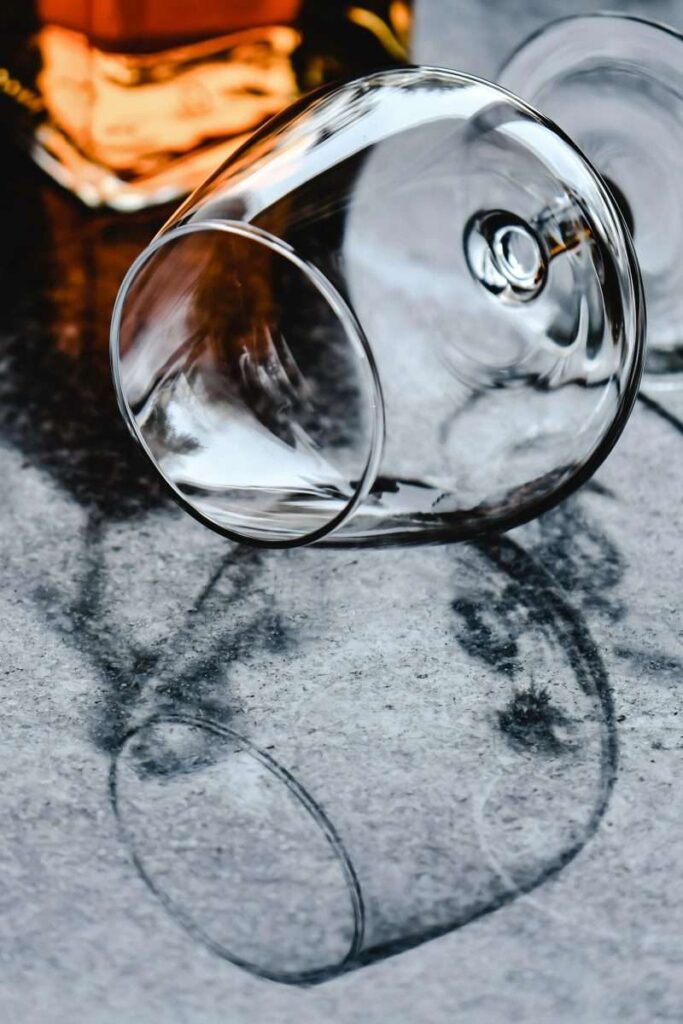“Always happy to share the message and give other people hope.” With those words, Janice Johnson Dowd explains why she tells her story.
She’s a licensed master social worker, a mother of four, a recovering alcoholic, and most recently an author. Her debut book, Rebuilding Relationships in Recovery, is both raw memoir and professional guide—proof that family bonds strained by addiction can, in fact, be restored.
In a candid conversation with Lianne Castelino for the Where Parents Talk podcast, Johnson Dowd opened up about her childhood, her years as a mother struggling with alcohol, and the long, uneven road to healing her relationship with her children.
Childhood Lessons in Dysfunction
Johnson Dowd grew up in a household where alcohol was ever-present, even if it wasn’t obvious from the outside.
“My dad was a fun drinker—he wasn’t sloppy, mean, or violent,” she recalls. “But my mother was the enabler. She was angry, hostile, trying to control him. So my confusion and frustration came from her.”
As a child, she quickly adapted to survive. “I learned how to people please, how to distract, how to hide how miserable I was. If you can lose yourself at 8 years old, I did. I built myself on other people’s expectations.”
From the outside, her family looked picture-perfect. “We were the middle-class family living the American dream,” she says. “But it was fake. We put on this persona for the neighbours. Inside, I kept thinking: something’s not right—it must be me.”
Determined Not to Repeat History
By her 20s, Johnson Dowd was determined to break free of her family’s patterns.
“I avoided alcohol and drugs because they made me feel out of control. I wanted to make sense of things, to be the perfect student, the perfect therapist,” she says.
She built a career in social work, specializing in addictions. She also raised four children, throwing herself into parenting. “We didn’t keep alcohol in the house. I took parenting seriously. I thought I was on a good path.”
But motherhood brought pressures that would eventually unravel her resolve.
The Slide Into Alcoholism
In her 30s, Johnson Dowd began to loosen her grip.

“I stopped taking care of myself. Stopped running. Stopped doing the things that kept me mentally healthy,” she explains.
Then came a telling moment. “My husband had won a trip to Hawaii. I actually stopped breastfeeding before that trip so that I could drink. That should have been a red flag.”
Over the next decade, her drinking escalated quietly. “I went from social drinking, to moderate drinking, to full-blown alcoholism. It was sneaky. I kept telling myself, ‘I’m drinking like everyone else.’”
The Hidden Cost for Her Children
As her drinking worsened, her children—then teens—took on adult roles.
“My daughter started taking care of her brothers. My middle son would warn the youngest, ‘Stay at a friend’s house until Mom’s in a better mood.’ They withdrew from me emotionally and physically,” she admits.
The truth hit hardest when she entered treatment and read letters her children had written about the impact of her drinking.
“One of my sons wrote that he lay in bed at night crying, afraid. Reading that broke me. I had told myself, ‘I only hurt myself.’ But I had hurt them deeply.”
Hitting Bottom
By her late 40s, Johnson Dowd was unraveling.
“The last three years of my drinking were the worst. I was depressed, anxious, not sleeping. I tried everything—counselling, antidepressants, anti-anxiety meds. But nothing worked because I was still drinking.”
Her lowest moment came during Mardi Gras.
“I told myself, I’ll drink just this week. Within four days, I embarrassed myself in front of my kids and friends. I drove drunk and took out my neighbour’s mailbox. That was it. I hit bottom.”
She entered treatment, reluctantly. “I didn’t want to go. But it was exactly what I needed.”
The Parallel Roads of Recovery
Sobriety didn’t instantly repair her family bonds.
“In early recovery, I invested in myself, but I wasn’t tending to my family relationships. That was another kind of abandonment,” she admits. “I made mistakes. I didn’t balance my needs with theirs.”
Slowly, she realized rebuilding required brutal honesty and patience.
“I had to say, ‘Yes, it was that bad. What I did to you was that bad.’ I had to listen more than I talked. And I couldn’t expect them to love me back right away.”
It took a year before she saw any progress. “With my youngest, it took four years. Consistent behaviour over time was the only way.”
Advice for Parents
For parents worried about their own drinking—or the effects on their children—Johnson Dowd suggests:
-
Educate yourself. “Take a hard look at how alcohol serves you. Write it down. It’s harder to deny what you see in black and white.”
-
Ask for help.“There’s nothing weak about seeking counselling, joining support groups, or even listening to podcasts like this. Don’t wait until you hit rock bottom.”
-
Be honest with your kids. “Validate their feelings. Tell them, ‘I hurt you, and I’m sorry.’ That honesty opens the door to healing.”
-
Practice patience. “Relationships don’t bounce back overnight. Don’t expect quick forgiveness. Show change through consistent actions.”
She also emphasizes the importance of prevention. “I’m proud of the alcohol-free movement I see today. If I had stopped earlier, addressed my childhood wounds sooner, I might have avoided full-blown alcoholism.”
 A Book Born of Experience
A Book Born of Experience
After six months of sobriety, Johnson Dowd realized her identity as a mother was fractured.
“I saw I had lost my family, and I fell into a deep depression. But my therapist said, ‘This is an opportunity for growth.’ So I started researching, talking to other parents in recovery, learning what worked and what didn’t.”
That research became Rebuilding Relationships in Recovery. “I wrote the book I wish I’d had. Because treatment focuses 95% on the addict. But families can be your greatest support—or they can sabotage your recovery. We need more tools for healing together.”
The Message of Hope
Today, more than 12 years sober, Johnson Dowd sees her story as both a warning and a beacon.
“I lost my family once. But recovery gave me the chance to rebuild,” she says. “And I want other parents to know—it is possible.”
She adds, “Don’t wait until you’ve hit bottom. Don’t believe the lie that you’re only hurting yourself. And above all—don’t give up on the possibility of repairing what feels broken. Families can heal.”
Related links
Related articles
When Sobriety Meets Parenthood: One Mom’s Journey From Addiction to Recovery
Impact of Drinking Alcohol: New Scientific Findings
The Impact of Sports Betting, iGaming, Youth Gambling and Addiction
How to Build Addiction-Resistant Kids: POV from a Mom in Recovery


